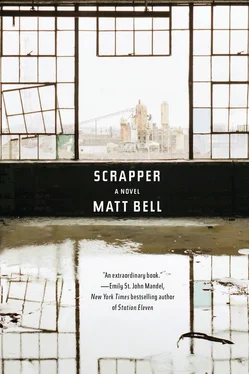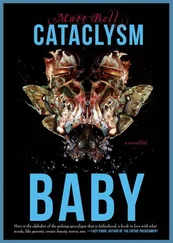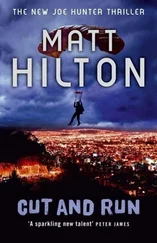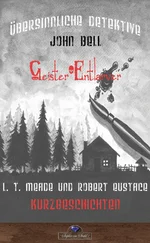Matt Bell - Scrapper
Здесь есть возможность читать онлайн «Matt Bell - Scrapper» весь текст электронной книги совершенно бесплатно (целиком полную версию без сокращений). В некоторых случаях можно слушать аудио, скачать через торрент в формате fb2 и присутствует краткое содержание. Год выпуска: 2015, Издательство: Soho Press, Жанр: Современная проза, на английском языке. Описание произведения, (предисловие) а так же отзывы посетителей доступны на портале библиотеки ЛибКат.
- Название:Scrapper
- Автор:
- Издательство:Soho Press
- Жанр:
- Год:2015
- ISBN:нет данных
- Рейтинг книги:4 / 5. Голосов: 1
-
Избранное:Добавить в избранное
- Отзывы:
-
Ваша оценка:
- 80
- 1
- 2
- 3
- 4
- 5
Scrapper: краткое содержание, описание и аннотация
Предлагаем к чтению аннотацию, описание, краткое содержание или предисловие (зависит от того, что написал сам автор книги «Scrapper»). Если вы не нашли необходимую информацию о книге — напишите в комментариях, мы постараемся отыскать её.
Scrapper
Scrapper — читать онлайн бесплатно полную книгу (весь текст) целиком
Ниже представлен текст книги, разбитый по страницам. Система сохранения места последней прочитанной страницы, позволяет с удобством читать онлайн бесплатно книгу «Scrapper», без необходимости каждый раз заново искать на чём Вы остановились. Поставьте закладку, и сможете в любой момент перейти на страницу, на которой закончили чтение.
Интервал:
Закладка:
Whenever he woke up alone in his apartment he woke up afraid.
Where was the girl. Where was the boy.
For some time he couldn’t bring their names to mind.
But then Jackie . But then Daniel .
He wrote down the same details again but not in the same way. He began to call the heavy detective’s desk in the middle of the night, calling from pay phones to leave lengthy messages, the disconnected thoughts of the case notes:
I know the past is the past and cannot be changed. I accept this limitation but I do not accept that the past does not end, how I have to live through the past again and again in the present, how the future must contain the same.
How do you see what might take the people you love. How do you understand which of their million hurts is the one that changes them forever.
What other stories are there. What other stories go on and on, waiting for someone strong enough to bend them toward their conclusions.
Kelly never identified himself, hung up if the detective answered with his voice too high pitched for his bulk, asking what, who, why , all the investigative cues. And what was the detective doing there so late, working past midnight, past the middle of the darkest hours.
In the last third of the case notes, Kelly wrote version after version of opening the basement door, of releasing the boy’s wailing, and as he descended the stairs again and again the bed never moved from the center of the room, but was it always the same bed?
The boy was still the boy but now he knew more.
The chair was there too but sometimes he put someone in the chair.
When he tried to picture the bed as he first saw it he also saw the cuff chain looped around the bedframe but he knew he had tried to lift the boy from the bed before knowing the boy was cuffed to the rail. On the page the boy screamed again. Kelly couldn’t have known about the cuffs in the darkness but now he remembered he had. Even as he knew he hadn’t.
The scrapper lived within one story. The salvor occupied another. The case thickened with what they added. What bothered him weren’t the gaps but their overlap. The many stories where there should be one.
Kelly spoke into the phone, said, The threat of physical violence is not enough to prevent violence but it is enough to match it. I used to know this. I used to have a savagery lodged within my bones. Once you could have taken out a rib to grow a killer. I haven’t been punished but who says I don’t want my punishment. I have excuses but I am exhausted by my excuses. Now I want to remove my own rib. To plant it back. The rib is named the scrapper. I recognize the arguments. Circumstances have made me uniquely qualified to be this specific kind of good man. An action that is the end that justifies the means.
The other good man is called the salvor. The one who salvages. Because what is there in the zone but ruin. Who is there left in this blue world but everyone lost at sea, sliding free of the sudden slant of a sinking ship.
Whenever he imagined finding the boy, the boy he saw in the bed became the boy he knew. Not a stranger trapped but his friend taken, an individual stolen from his care. Memory shifted to accommodate current emotion: What was he afraid of then. What was he afraid of now. What was the difference.
He knew so much more about the boy but who was the watcher, a name that meant nothing, the man in the red slicker, a description pretending to be a title.
In the absence of knowledge he inserted abstraction. In abstraction he had always found something easier to fear. It was easier to see if he put the mugger in the chair. If he made the man with the gun do the watching. It made him feel less unsure if it was the brother who sat there, supposedly cruel.
It was not difficult, in his mind, to put either inside the red slicker.
When Kelly called the heavy detective, he sometimes wanted to reveal his identity, to ask if the detective would play his statement back to him. So he could know how it had changed. Because what he remembered was that the salvor opened the door and the boy was there in the bed, whole and ready for rescue. Or else the scrapper opened the door and there was no boy. Or else the scrapper opened the door and there was a boy and there was a suspect and you finished rescuing the boy by punishing the suspect too. A rescue in two parts.
The man in the red slicker, Kelly said, is he a person or an action? An action that until I found the boy I had never been able to name?
Sometimes Kelly would look at the boy and also through him. When the boy sat on the living room floor watching the television or doing his homework. The boy didn’t flicker but maybe he fugued. Once when the boy was over Kelly looked out his window and thought he saw the detective sitting in an unmarked car across the street but what was the chance. He picked up his phone, dialed the detective’s cell number, got the voicemail message. If the detective was the man in the car, then he did not move to answer.
How far back does the long stain go, Kelly asked, one hand opened against the window glass. How can we assign blame unless we know the original mistake, the first man standing over the first boy.
Kelly started to forget if the boy was with him. An amnesia of the commonplace. The first time the girl with the limp woke to the boy sleeping on the couch — to Kelly sitting in the armchair, watching him sleep — she didn’t say anything she couldn’t say with arched eyebrows, a crumpling of the forehead. The tight set of her mouth, holding back all the questions they’d agreed not to ask.
He knew he was making a mistake but he wouldn’t tell the boy no. Another afternoon the buzzer sounded and Kelly pressed the intercom button, asked who it was. The boy knew to let himself in but then the boy’s voice answered: he’d lost his key, needed to be buzzed into the building.
I’m sorry, the boy said, his voice crackling over the intercom.
Inside the apartment the boy hurried to unwrap himself, hat and gloves and scarf and overcoat and blazer, shivering and anxious.
I looked everywhere, the boy said. My room, my desk, my bag. Everywhere.
The constrained everywhere of the young.
Kelly had never seen this expression on the boy’s face: the boy was worried he would be punished. As if Kelly were Kelly’s father, the boy Kelly’s father’s boy.
Locks can be changed, Kelly said. I’m sure you’ll find it. It’s nothing.
Kelly reached for the boy and the boy flinched and Kelly grabbed him anyway. Kelly kneeled down, pulled the boy to his chest, put the weight of the boy’s head against his shoulder. He had never dared hold the boy before, had rarely touched him since bringing him out of the basement. He had barely let himself imagine all this heat, all these bones and scrawny muscles, all this need wrapping arms around him too. This amazing gesture, what he’d wanted for so long. Every moment after wouldn’t be this moment but this one could stretch as long as it had to, its memory becoming something lasting. A charm, Kelly thought, a reassurance in the dark.
THE WEATHERMAN SAID RAIN ALL day but they walked along the river anyway, her hand in his while the boy skipped ahead, kicked at loose rocks, debris fallen over the footpath. The water’s edge was the edge of the city and the edge of the country and on the other bank of the river there was another country because there was nowhere on earth where one nation ended and another did not begin. It was too cold, the end of the year, but it was still forecast to rain any minute and this was the right kind of danger for a man and a woman and a boy. A manageable catastrophe at worst, a story to share. There were other times of day when it wouldn’t be safe to be here. For now there was the rain that didn’t come and the charcoal sky and the high gusting wind putting new waves in the fast chop of the river. The boy ran ahead but he never failed to turn back, and every time he looked Kelly weighed the tangible substance of the gaze. He smiled, shook his head, pointed at the boy. She squeezed his hand. In the distance there was thunder but they couldn’t see the lightning and though they walked all day the rain never came. Ahead of them the boy passed into the darkness of a tunnel under a bridge and though Kelly couldn’t see him he could hear the boy’s laughter, the surprise at being alone in the dark and yet still safe.
Читать дальшеИнтервал:
Закладка:
Похожие книги на «Scrapper»
Представляем Вашему вниманию похожие книги на «Scrapper» списком для выбора. Мы отобрали схожую по названию и смыслу литературу в надежде предоставить читателям больше вариантов отыскать новые, интересные, ещё непрочитанные произведения.
Обсуждение, отзывы о книге «Scrapper» и просто собственные мнения читателей. Оставьте ваши комментарии, напишите, что Вы думаете о произведении, его смысле или главных героях. Укажите что конкретно понравилось, а что нет, и почему Вы так считаете.












